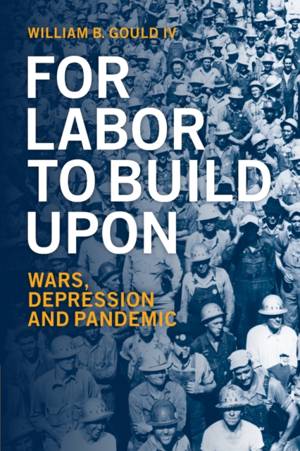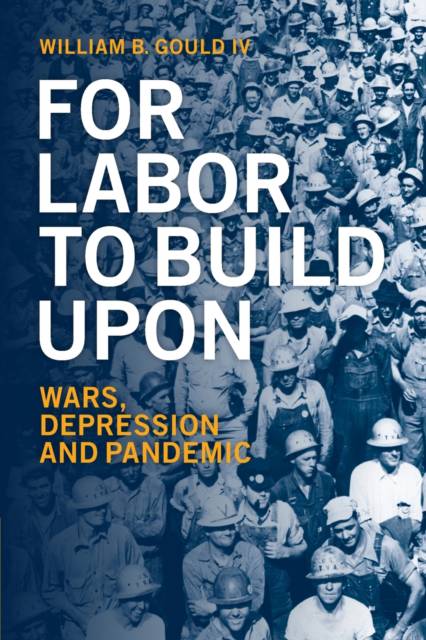
- Afhalen na 1 uur in een winkel met voorraad
- Gratis thuislevering in België vanaf € 30
- Ruim aanbod met 7 miljoen producten
- Afhalen na 1 uur in een winkel met voorraad
- Gratis thuislevering in België vanaf € 30
- Ruim aanbod met 7 miljoen producten
Zoeken
€ 43,45
+ 86 punten
Uitvoering
Omschrijving
One of the enduring legacies of the United States Civil War is that democracy in the workforce is an essential part of societal democracy. But the past century has seen a marked decline in the number of unionized employees, a trend that has increased with the rise of the internet and low-paying, gig-economy jobs that lack union protection. William B. Gould IV takes stock of this history and finds that unions, frequently providing inadequate energy and resources in organizing the unorganized, have a mixed record in dealing with many public-policy issues, particularly involving race. But Gould argues that unions, notwithstanding these failures, are still the best means to protect essential workers in health, groceries, food processing, agriculture, and the meatpacking industry, and that the law, when properly deployed, can be a remedy not only for trade union-employer relationships, but also for the ailments of democracy itself.
Specificaties
Betrokkenen
- Auteur(s):
- Uitgeverij:
Inhoud
- Aantal bladzijden:
- 280
- Taal:
- Engels
Eigenschappen
- Productcode (EAN):
- 9781009159388
- Verschijningsdatum:
- 2/06/2022
- Uitvoering:
- Paperback
- Formaat:
- Trade paperback (VS)
- Afmetingen:
- 152 mm x 229 mm
- Gewicht:
- 276 g

Alleen bij Standaard Boekhandel
+ 86 punten op je klantenkaart van Standaard Boekhandel
Beoordelingen
We publiceren alleen reviews die voldoen aan de voorwaarden voor reviews. Bekijk onze voorwaarden voor reviews.











